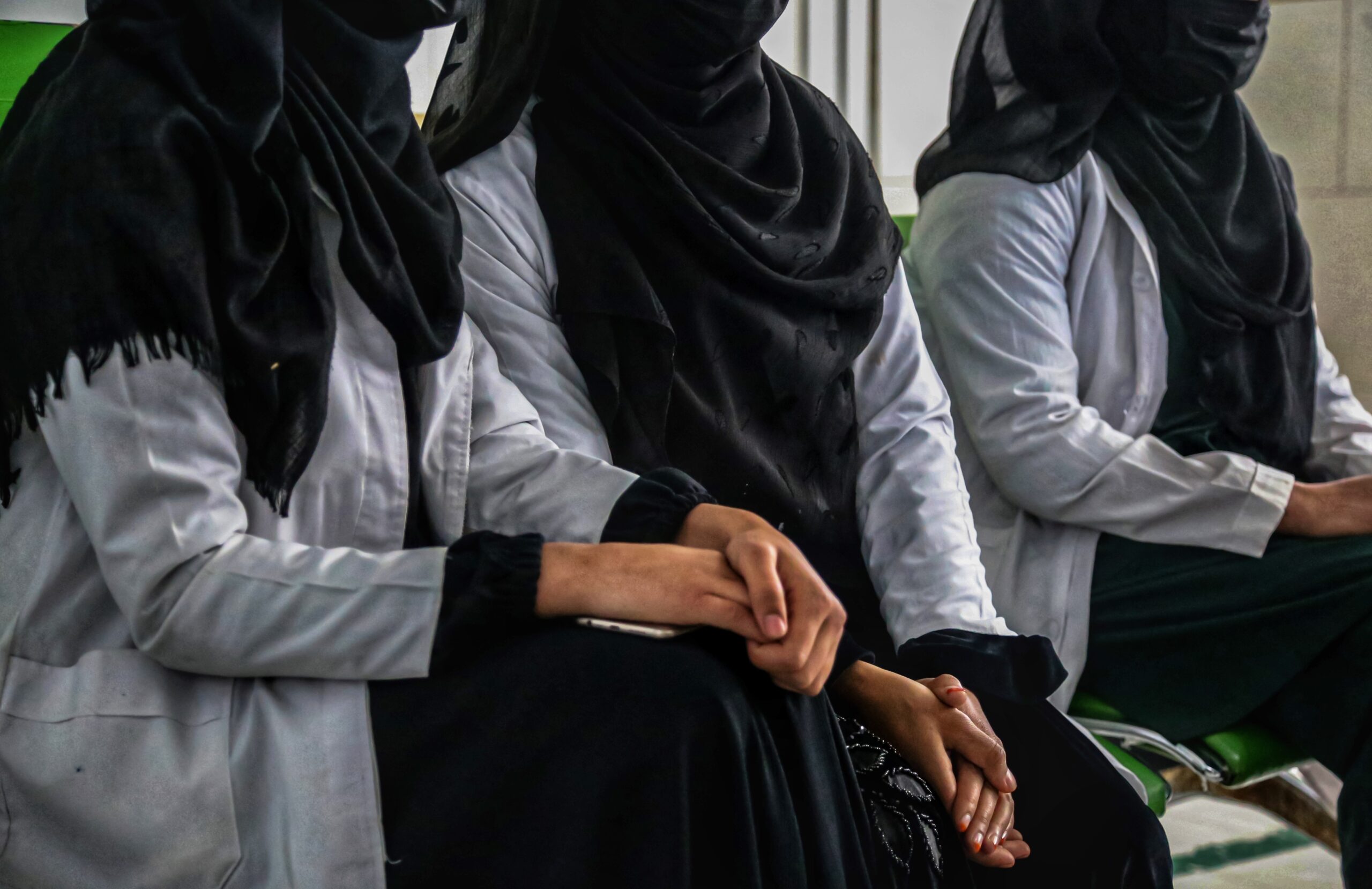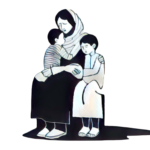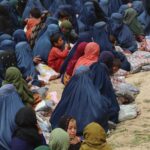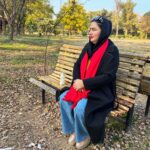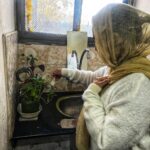The sun was low over Kabul, casting a soft orange glow on the mountains as Amina stepped out of her modest home. Her bag was slung over her shoulder, filled with notebooks and a well-thumbed anatomy textbook. She walked quickly, eager to make it to her midwifery training center before the streets filled with the familiar chaos of the morning. This wasn’t just another day of lessons. For Amina, it was a step toward a life where she could save others—and herself.
Her journey to the center was lined with memories of her battles to get there. She remembered her father’s reluctance when she first spoke of becoming a midwife. “It’s not safe for women to study anymore,” he had said, his voice heavy with worry. But her mother had stood firm. “If we need midwives, who else will help the women in our villages?”
That argument had convinced him, though Amina knew it wasn’t without a shadow of fear.
As she neared the gates of the center, she noticed something was wrong. A group of women—her classmates—stood huddled together, their faces pale, some streaked with tears. The heavy iron gate, usually open by now, was shut. Amina quickened her pace.
“What’s happening?” she asked, her voice tinged with unease. One of her classmates, Zohra, looked at her, eyes brimming with anger and despair.
“They’ve closed it. They told us not to come back.”
Zohra
The words hit Amina like a physical blow.
She pushed her way closer to the gate, as though proximity might offer clarity. Beyond the locked entrance, the training center stood eerily silent. No familiar voices discussing lessons, no instructors hurrying to class. A lone guard stood near the gate, refusing to answer their questions.
“Is this temporary? When will it reopen?” Amina’s voice cracked as she demanded answers. But there were none.
One woman, older and with a worn face, tried to rally them. “Standing here won’t change anything,” she said softly.
“The Vice and Virtue officials (Taliban) are nearby. We need to leave.”
The woman said
On December 3rd, during a meeting, the institute directors were informed that women and girls are no longer permitted to study at their institutions. No details or justifications were given.
Amina felt her legs weaken as she watched her hopes collapse before her. She thought of her classmates who had left their children at home, of the women who had traveled from distant villages for the chance to learn. She thought of the patients she would never be able to help—the mothers and babies who would now face even greater risks because there would be no one to care for them.
As they began to leave, some of the women sang softly, their voices trembling but defiant. The words were an old Dari song about resilience, one their mothers had sung to them as children. It was both a protest and a farewell.
The walk home felt longer than ever. When Amina reached her front door, she didn’t know how to explain what had happened. Her mother, always strong, would try to comfort her. But what comfort was there when the future seemed to shrink smaller every day?
That evening, as she sat in the quiet of her room, Amina opened her anatomy textbook one last time. She ran her fingers over the pages she had studied so hard, over the notes she had written in the margins.
For a moment, she let herself dream of what could have been: a bustling clinic filled with women who trusted her, babies crying their first cries, families rejoicing.
But the dream faded as quickly as it had come, leaving her with the heavy reality of a future that was no longer hers to claim.
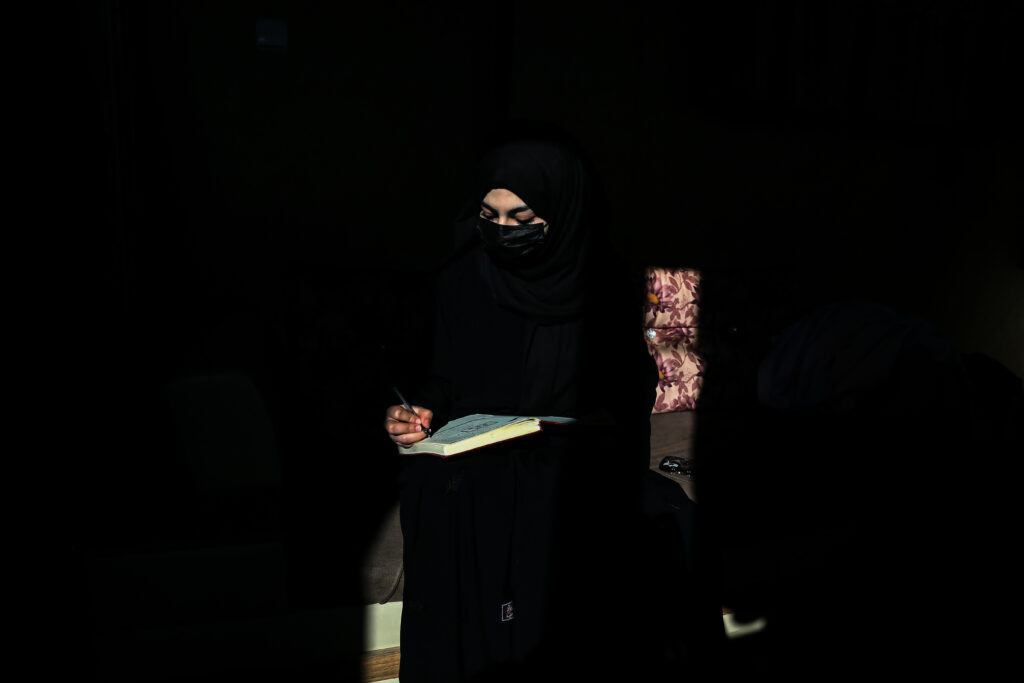
The Erosion of Women’s Education: Key Taliban Restrictions Since 2021
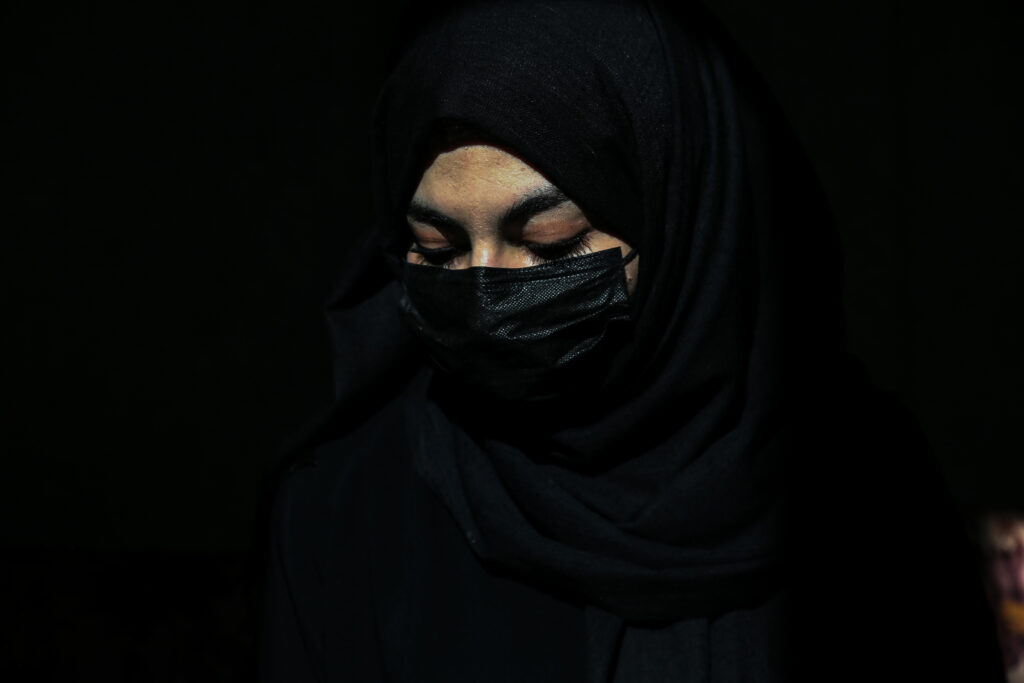
Nasrin’s Fight: From Journalist to Midwife in a Land That Bans Dreams
Nasrin was used to hearing her voice carry over airwaves. For years, she had been a journalist—a rarity in a profession dominated by men, even before the Taliban’s resurgence. She had reported on everything from cultural festivals in the northern provinces to the challenges faced by widows during harsh winters. Her voice was steady and confident, a beacon of hope for women who found strength in hearing one of their own challenge the status quo.
But that voice had been silenced. When the Taliban retook power, the restrictions on women in media were immediate. Female journalists were told to stay home, their presence in the newsroom deemed “improper.” Nasrin had fought back at first, penning anonymous articles for underground publications and assisting her colleagues from the shadows. But as the walls of control closed in, even that became too dangerous.
Nasrin’s dreams of journalism were forced to evolve. She couldn’t give up entirely, not when there was so much work to do. “If I can’t tell stories, I’ll help write a new chapter for the women here,” she had resolved. That’s how she found herself in the midwifery training program. It wasn’t what she had envisioned for herself, but it was a lifeline—a way to remain useful, to contribute to her community, to reclaim a sense of purpose.
For months, Nasrin poured herself into her studies. She learned how to deliver babies, manage complications, and counsel expectant mothers. The course was rigorous, and the lack of resources was a constant challenge, but Nasrin and her classmates bonded over their shared determination. They would whisper plans to one another about how they would return to their villages and serve the women who needed them most.
The closure of the midwifery program felt like losing her voice all over again. Nasrin stood outside the locked gates, the echoes of her classmates’ frustration and despair swirling around her. She stared at the building where she had dared to dream anew, now inaccessible. Her fists clenched as the anger burned through her.
“This is not the end,”
Nasrin
She muttered to herself as she walked back home that day, her steps heavy but resolute.
That evening, as she sat alone in her room, Nasrin opened a notebook where she had sketched out her plans for a rural clinic. The pages were filled with diagrams, notes on birthing techniques, and names of women she had promised to train once she completed her certification. She flipped through them slowly, her heart aching with each page.
Her eyes landed on an empty section at the back of the notebook. Picking up a pen, she began to write again—not articles this time, but a letter. It was addressed to the women of Afghanistan, a manifesto of resilience. She wrote about their courage, about how their spirit could never be truly silenced. She wrote about finding ways to learn in secret, to share knowledge, to continue fighting even in the face of relentless oppression.
When she finished, Nasrin sat back and read her words. Her voice, though confined to ink and paper, was alive once more. The Taliban might have taken her microphone, her classroom, and even her future as a midwife, but they could not take the one thing she refused to relinquish: her will to fight for the women of Afghanistan.
Nasrin folded the letter and placed it in the notebook, knowing that one day, someone would read it. Maybe it would inspire them to pick up where she had left off, to dream again in a land that seemed determined to bury dreams. For now, it was enough to know that her voice still existed, even if it was just a whisper in the dark.
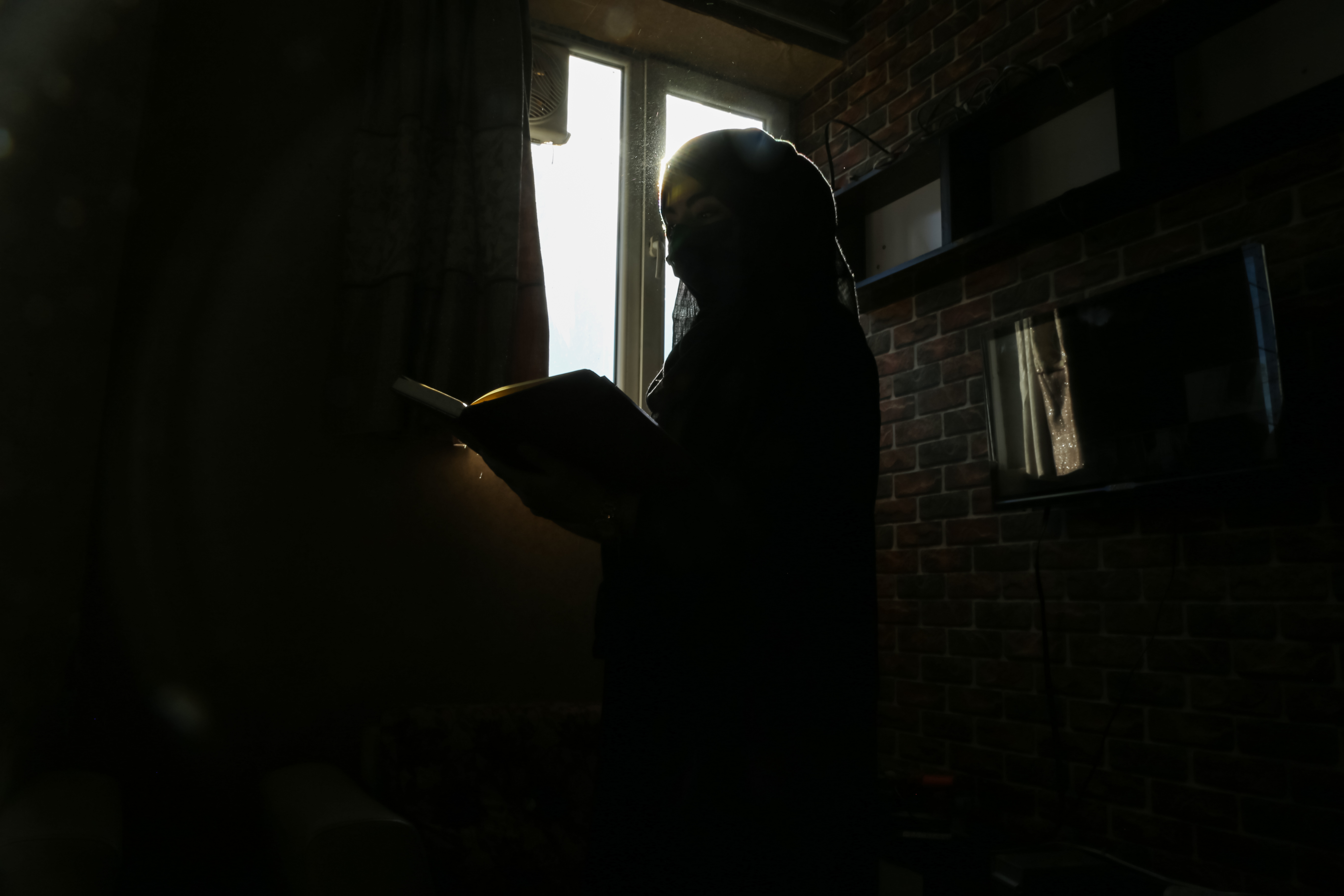
The country already faces a severe shortage of midwives, with the United Nations estimating that an additional 18,000 are needed to meet healthcare demands. Afghanistan has one of the highest maternal mortality rates in the world, with 620 women dying for every 100,000 live births. This shortage in skilled midwives exacerbates the already dire situation. The impact of these new restrictions on the healthcare system is yet to be fully understood, but it is expected to further strain an already fragile healthcare infrastructure, especially in rural areas where women and children often face the most severe health challenges.
For women in Afghanistan, the path to education and professional empowerment has become increasingly restricted, and with it, the ability to protect and improve the health and well-being of their families. The closure of midwife training programs not only robs women of an opportunity to contribute to society, but it also places Afghan mothers and babies at greater risk, undermining decades of progress in maternal healthcare.
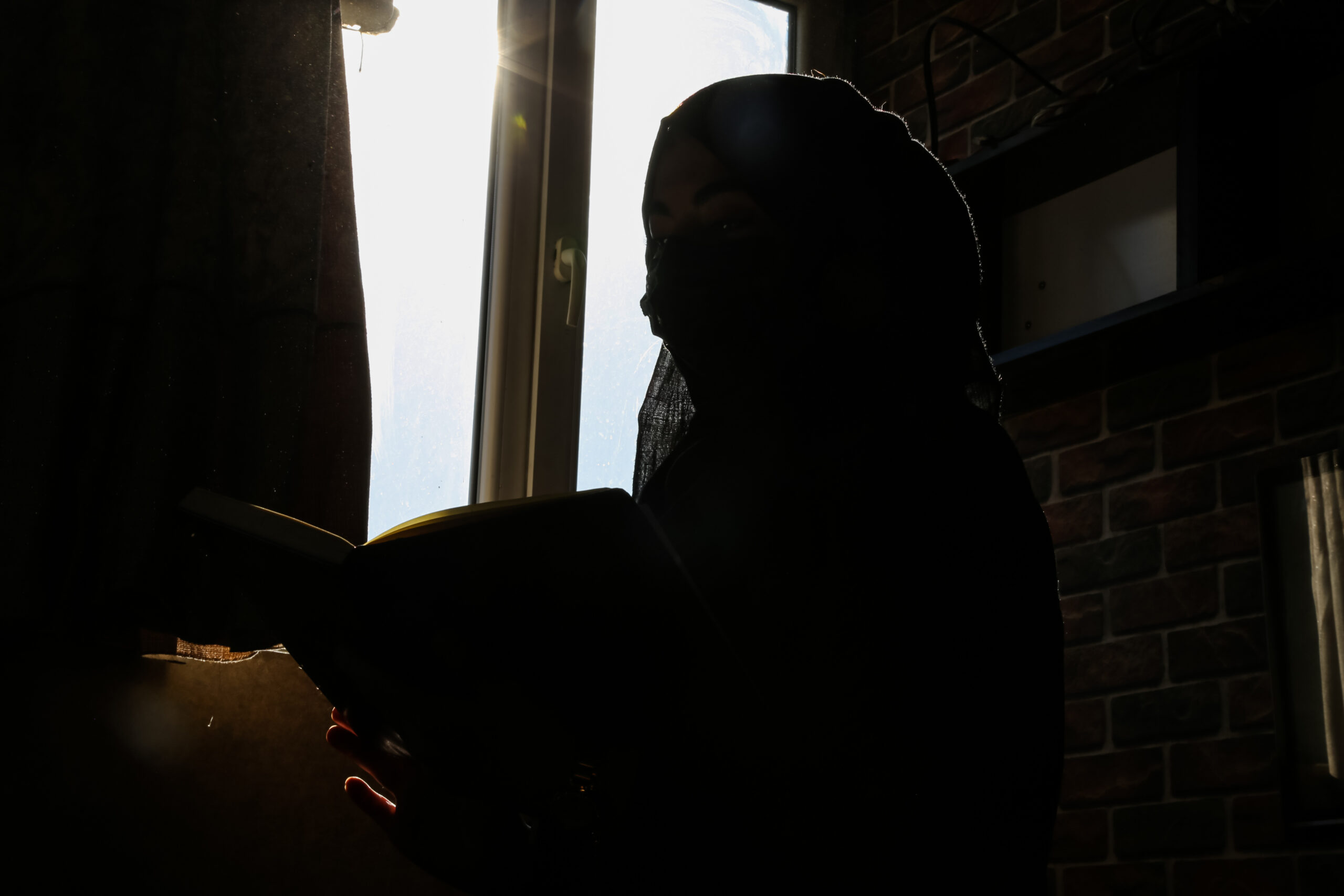
The Systematic Erasure of Women’s Rights: Taliban Restrictions Since 2021
⬇
This is not a comprehensive list of the Taliban’s restrictions on women. Day by day, the Taliban imposes additional limitations, systematically eroding women’s rights and freedoms in Afghanistan.
Editor’s Note:
I, Salma Niazi, Editor-in-Chief of The Afghan Times, was in touch with more than 30 women for hours over the telephone after hearing the devastating news of the closure of their institutions. Through their tears, they shared their stories of shattered dreams and resilience. I have done my utmost to bring these voices to you, documenting their experiences in the face of relentless oppression. To ensure the depth and authenticity of this account, my photographers on the ground visited these women in their homes, capturing their realities and preserving their stories for the world to witness.
For security reasons, the names in these stories have been changed.


